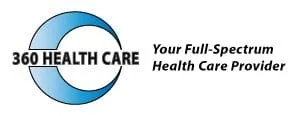Preventing Cancer
by Dr. Suzanne Swearengen
The media strongly promotes the need for a cure for cancer and thousands of organizations are devoted to that same cause. What about cancer prevention? This topic appears to receive very little attention. This is thought provoking when one considers that cancer related deaths have decreased, but overall occurrence has increased by 300% over the past 15 years.
The Mayo Clinic and Johns Hopkins Hospital support research based evidence which reveals preventative measures for Breast, Uterine, Ovarian and other types of cancer. According to the research, one third of cancer cases are preventable and prevention is the most cost effective long term strategy for controlling cancer. Despite the complexity of treating cancer, prevention can be relatively simple. Here are ten steps to incorporate into daily life that can reduce risk of developing cancer.
- Do not use tobacco of any kind and avoid second hand smoke.
- Tobacco use is linked to these cancers: Lung, Cervical, Pancreatic, Kidney, Bladder, Mouth, Throat, and Esophagus.
- Increase consumption of plant source food.
- Diets high in vegetables, fruits, greens, and grains lower the risk for Colon, Lung, Esophageal, and Stomach cancer. Recent research has associated cruciferous vegetables with lowered Breast cancer risk. Cruciferous vegetables include cauliflower, brussel sprouts, broccoli, cabbage and kale.
- Increased activity in one’s daily routine reduces risk for Breast, Uterine, Prostate, and Colon cancer. Focused exercise for at least 30 minutes a day 4 to 5 days a week is recommended – more is better. It is best to consult with a qualified healthcare professional or personal trainer before starting any vigorous program.
- Get eight to nine hours of restful sleep regularly.
- The body regenerates and heals during the sleep cycle. Adequate sleep boosts immunity, which optimizes cell and organ function.
- Limit or eliminate alcohol consumption.
- Breast cancer in particular has been linked to alcohol consumption. Individuals over the age of 65 are at a greater risk and should consume less than one drink per day.
- Enjoy a low fat diet.
- Excess weight predisposes the body to numerous health problems, including cancer. Reducing meat and processed foods is a good first step.
- Avoid long term Hormone Replacement Therapy (HRT).
- Conclusive evidence exists that links HRT and breast cancer risk. It is recommended to try other options to control menopausal symptoms first. Lifestyle changes, Acupuncture, and Holistic Medicine have good success rates in managing menopausal issues.
- Birth Control pills are also suspect, but there is no research linking current dosages to premenopausal breast cancer.
- Avoid overuse of antibiotics.
- Avoid exposure to pesticides.
- Some pesticides have molecular structures which mimic that of estrogen. These molecules then bind to the body’s estrogen receptor sites.
- Reduce Stress.
- Stress is a precursor to many health problems because it lowers immune response and resistance to dysfunction.
- Avoid hectic schedules and get help to manage stress in life.
These are basic changes that one can make to reduce the risk of cancer as well as other common health issues. For individuals who have a history, or family history of cancer, it may be necessary to seek professional guidance. A qualified healthcare practitioner can configure a program of prevention tailored to fit your life and body.
